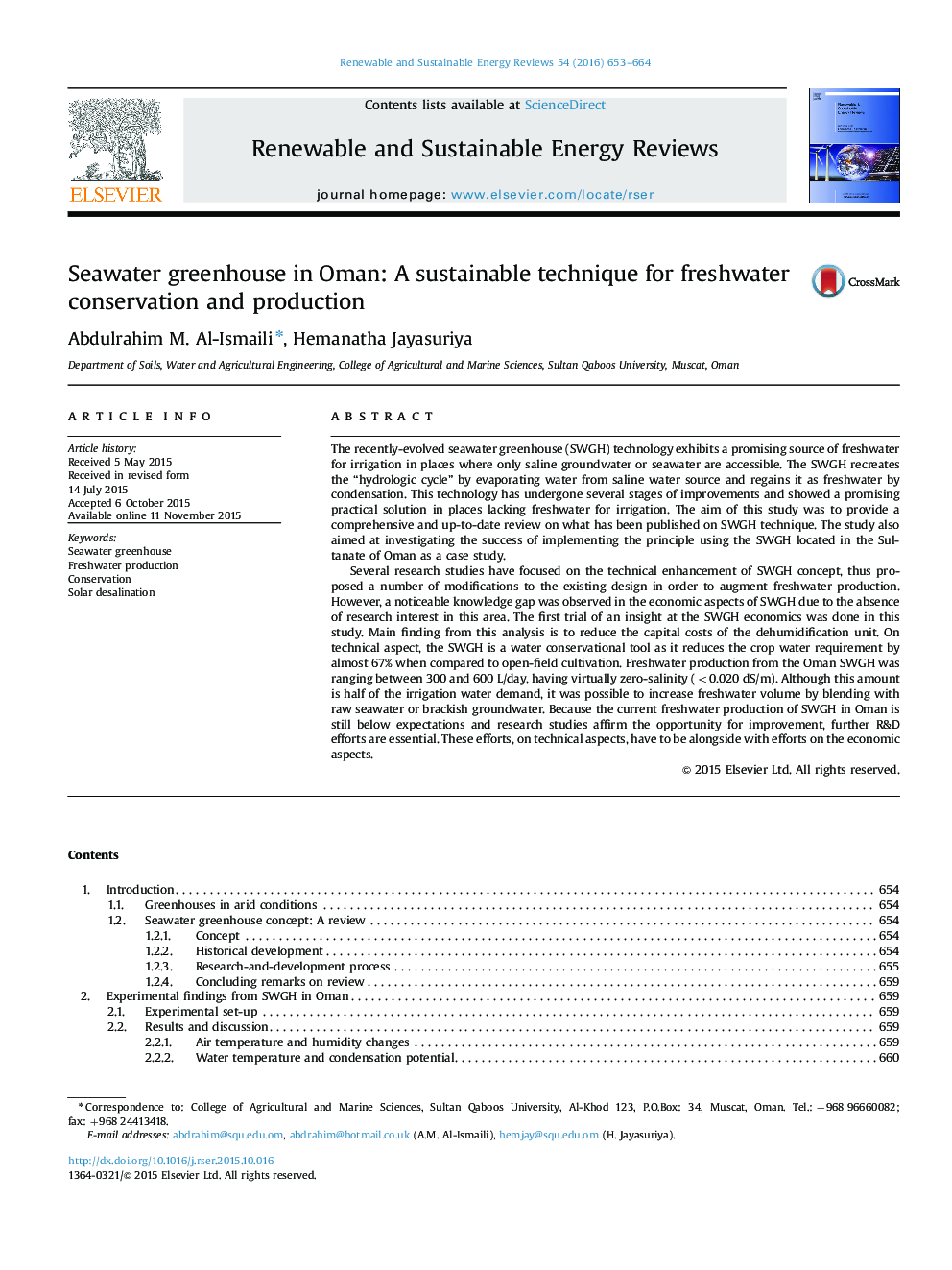| Article ID | Journal | Published Year | Pages | File Type |
|---|---|---|---|---|
| 1749865 | Renewable and Sustainable Energy Reviews | 2016 | 12 Pages |
The recently-evolved seawater greenhouse (SWGH) technology exhibits a promising source of freshwater for irrigation in places where only saline groundwater or seawater are accessible. The SWGH recreates the “hydrologic cycle” by evaporating water from saline water source and regains it as freshwater by condensation. This technology has undergone several stages of improvements and showed a promising practical solution in places lacking freshwater for irrigation. The aim of this study was to provide a comprehensive and up-to-date review on what has been published on SWGH technique. The study also aimed at investigating the success of implementing the principle using the SWGH located in the Sultanate of Oman as a case study.Several research studies have focused on the technical enhancement of SWGH concept, thus proposed a number of modifications to the existing design in order to augment freshwater production. However, a noticeable knowledge gap was observed in the economic aspects of SWGH due to the absence of research interest in this area. The first trial of an insight at the SWGH economics was done in this study. Main finding from this analysis is to reduce the capital costs of the dehumidification unit. On technical aspect, the SWGH is a water conservational tool as it reduces the crop water requirement by almost 67% when compared to open-field cultivation. Freshwater production from the Oman SWGH was ranging between 300 and 600 L/day, having virtually zero-salinity (<0.020 dS/m). Although this amount is half of the irrigation water demand, it was possible to increase freshwater volume by blending with raw seawater or brackish groundwater. Because the current freshwater production of SWGH in Oman is still below expectations and research studies affirm the opportunity for improvement, further R&D efforts are essential. These efforts, on technical aspects, have to be alongside with efforts on the economic aspects.
